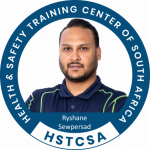Welcome
Please view the course navigation video below
Dear Member
Welcome to the CPD Scholar-EMC Hub! As a valued member, you now have exclusive access to our comprehensive library of journal articles, carefully curated to support your continuous professional development (CPD) requirements as mandated by the Health Professions Council of South Africa (HPCSA).
CPD Requirements Overview: Each healthcare practitioner registered with the HPCSA is required to accumulate a specified number of CPD points annually to maintain their registration and ensure their knowledge and skills remain current. These points are divided into clinical and ethics categories, allowing practitioners to enhance both their specialized knowledge and ethical understanding in practice. Please review your specific requirements below:
| EMERGENCY CARE PRACTITIONERS | |||
| ANA | Ambulance Emergency Assistant | 30 | 5 |
| ANT | Paramedic | 30 | 5 |
| BAA | Basic Ambulance Assistant | 15 | 2 |
| ECA | Emergency Care Assistant | 15 | 2 |
| ECT | Emergency Care Technician | 30 | 5 |
| ECP | Emergency Care Practitioner | 30 | 5 |
| OECO | Operational Emergency Care Orderly | 30 | 5 |
Your Subscription Benefits:
- Access to CPD Articles: Dive into our extensive collection of journal articles. Whether you need to brush up on the latest clinical techniques or explore complex ethical considerations, our library is equipped to serve your needs.
- Flexibility: With CPD Scholar-EMC Hub, you control your learning pace and schedule. Access and complete articles and quizzes as needed throughout the year.
- Choice of CPD Points: Choose between clinical or ethics CPD points based on your professional focus or requirements. Our platform allows you to tailor your learning experience to meet the specific CPD targets set by the HPCSA.
- Stay Current: Ensuring your registration remains in good standing requires staying up-to-date with your CPD points. Our platform makes it easy to track your progress and ensure you meet your annual requirements.
How It Works:
- Browse and Select: Log in to your member dashboard to browse the available articles. Filter by category—clinical or ethics—to find content that best fits your CPD needs.
- Read and Learn: Take your time to read through the selected article, absorbing the insights and information it provides.
- Complete the Quiz: After reading, you get 3 attempts to take the associated quiz. Achieving the required 70% score not only boosts your knowledge but also awards you the CPD points.
- Track Your Progress: Monitor your CPD point accumulation through your dashboard to ensure you’re on track for the year.
We are excited to support your professional journey with CPD Scholar-EMC Hub, your trusted partner in meeting CPD requirements and advancing your career.
About Instructor




